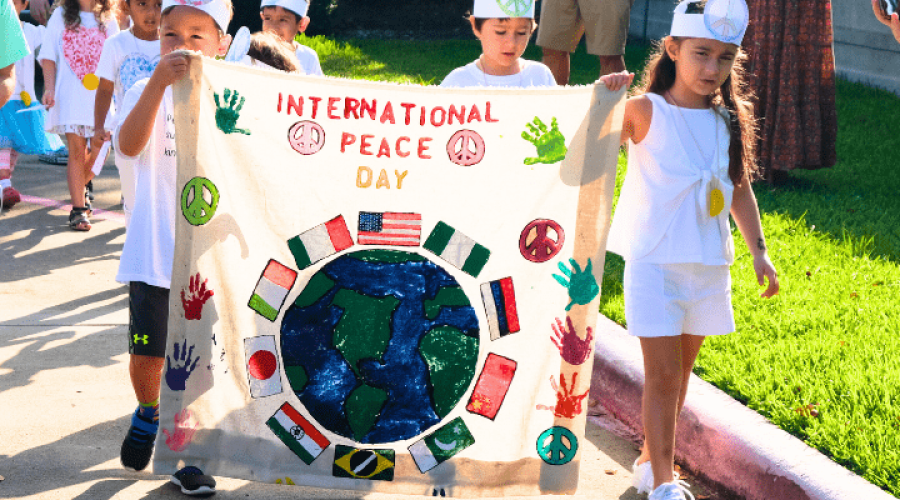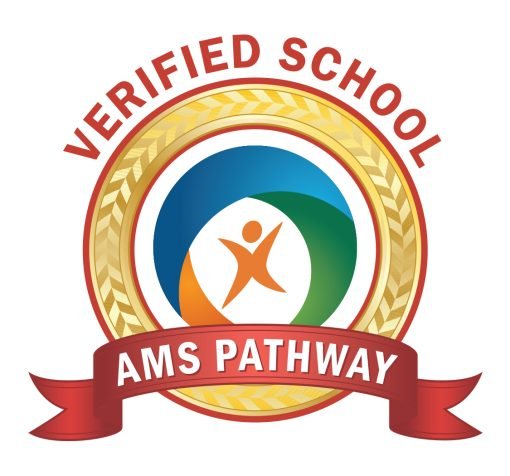International Day of Peace, celebrated annually on September 21st, is a day dedicated to promoting peace and harmony around the world. Established by the United Nations in 1981, this day reminds us of the importance of peaceful coexistence, conflict resolution, and the pursuit of a more peaceful future. In the Montessori educational approach, the principles of peace and global citizenship are deeply ingrained in the curriculum. In this blog, we will explore how the Montessori curriculum nurtures peace in young minds and how it aligns with the goals of International Peace Day.
“Peace is what every human being is craving for, and it can be brought about by humanity through the child.”
-Maria Montessori
Montessori Education: A Framework for Peace
Dr. Maria Montessori, the founder of the Montessori method, was a strong advocate for peace. She was nominated for the Nobel Peace Prize award for three consecutive years: 1949, 1950, and 1951. Dr. Montessori believed that education plays a vital role in promoting peace and social harmony. All in all, she designed an educational framework that fosters the holistic development of children. This includes their emotional, social, and intellectual growth.
As can be seen, the Montessori approach is grounded in several key principles that naturally align with the ideals of International Day of Peace:
Respect for Individual Differences
Montessori classrooms embrace diversity and recognize that each child is unique. We respect and celebrate individual differences, while encouraging children to appreciate diversity, thereby sowing the seeds of tolerance and acceptance.
Peace Education
Montessori classrooms are environments of peace where conflict resolution is taught as a life skill. In fact, children learn to use peaceful communication and we negotiate to resolve conflicts. Thus fostering a sense of empathy and understanding.
Independence and Responsibility
Montessori emphasizes independence. We encourage children to take responsibility for their actions. This promotes self-discipline and a sense of accountability, which are essential qualities for peaceful coexistence in society.
Global Awareness
Additionally, Montessori curricula often include lessons about different cultures, countries, and global issues. This larger perspective helps children develop an understanding of how our world connects. This fosters a sense of global citizenship and unity.
Environmental Stewardship
Montessori classrooms emphasize environmental education and the importance of caring for the planet. This instills a sense of responsibility for the environment. It also encourages children to become advocates for sustainable living and global ecological peace.
Peace Education in Montessori
Accordingly, in Montessori classrooms, peace education is not a standalone subject but rather an integral part of the curriculum.
Here are some ways in which Montessori educators nurture peace in their students:
- Conflict Resolution: Montessori teachers guide children in resolving conflicts through peaceful means. Children learn to communicate their feelings, listen to others, and find mutually agreeable solutions.
- Grace and Courtesy: Montessori students are taught the importance of good manners, respect, and consideration for others. These social skills promote positive interactions and peaceful relationships.
- Cultural Awareness: Montessori materials often include cultural studies, encouraging children to explore and appreciate the customs, traditions, and contributions of different cultures worldwide.
- Service Learning: Montessori programs often incorporate service-learning projects, allowing children to engage in activities that promote social responsibility and compassion, both locally and globally.
On International Peace Day, it is essential to reflect on the role of education in building a more peaceful world. Montessori education, with its emphasis on respect, independence, global awareness, and peace education, serves as a powerful model for nurturing young minds and hearts. This, in turn , molds minds and hearts that are inclined towards peace, empathy, and understanding. By integrating these principles into the Montessori curriculum, educators are planting the seeds of peace that can grow into a more harmonious and just world for future generations.
At Montessori House for Children and Elementary School, we’re excited to commemorate the International Day of Peace with music and a “Peace Parade.” This event aims to highlight the significant role of education, particularly Montessori education, in creating a more peaceful and inclusive global community.




